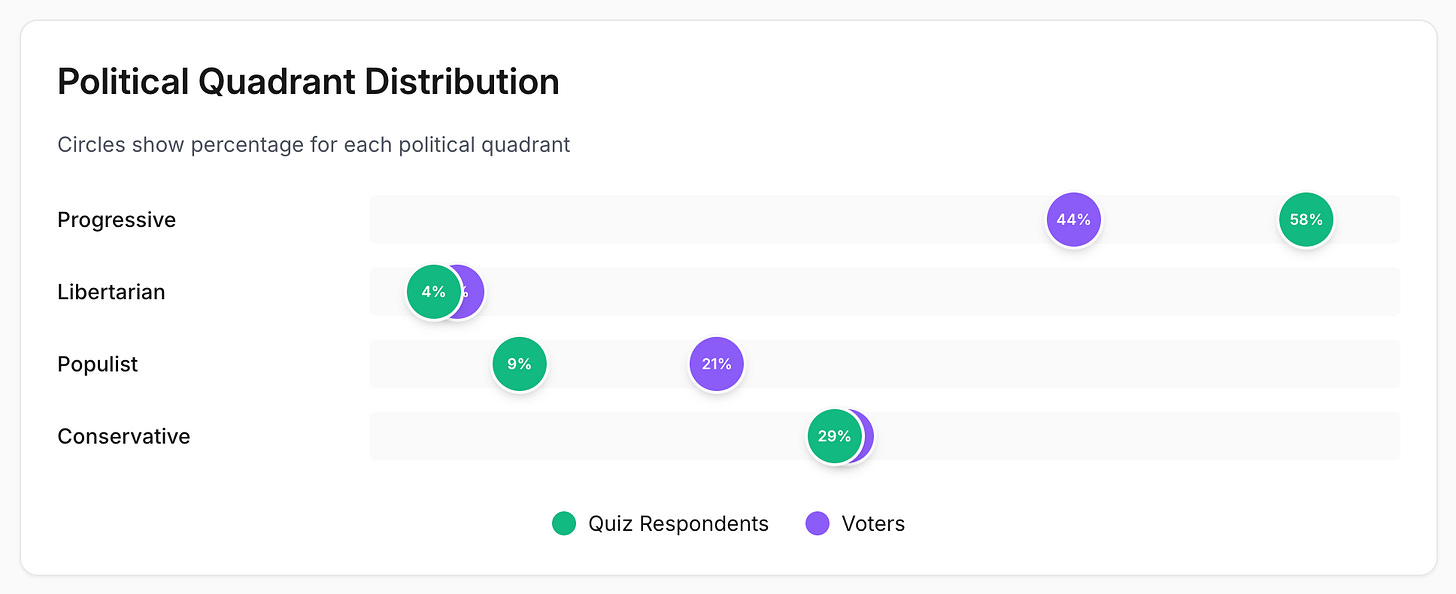The Internet vs. real life, quantified
Political Tribes Quiz results, Realignment wakeup call, why Texas isn't a dummymander, moderation still wins, Nate Silver's blistering takedown, a key difference in Trump's approval, politics at work
No. 382 | November 14th, 2025
🗳️ Takeaways from the first 46,000 Political Tribes quizzes
The Political Tribes quiz is inching up to 50,000 responses. Take it here.
Quizzes like this are never representative of the broader public. And that’s baked into the design: everything about this quiz is designed to compare people on the Internet to a representative sample of voters who answered the same questions. Here’s how they’re different:
Quiz takers are more progressive and less populist than people in real life.
An old-school left Labor Party in our multiparty democracy test does about as well on the Internet as in real life, but more niche left factions like the neoliberal Acela Party and the far-left Green Party do better. A traditional Conservative Party does better than a MAGA-like Nationalist Party than it does in real life.




